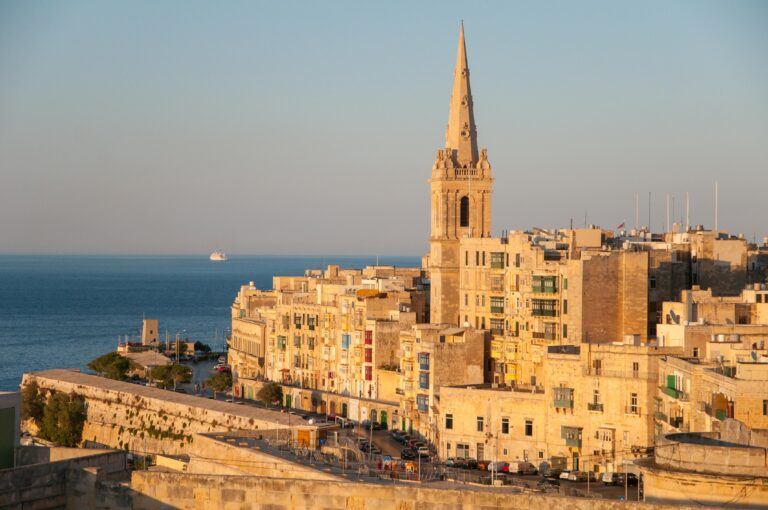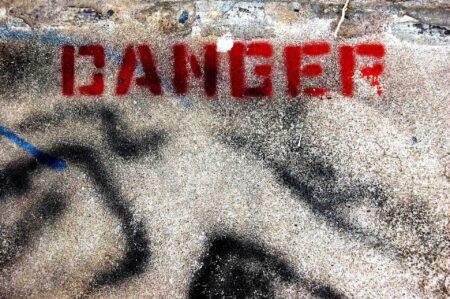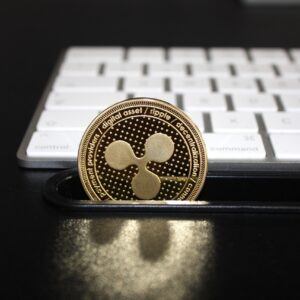Malta has literally paved its own way in the world to no longer serve as a resort for English learners. One of the smallest countries in the EU and having no natural resources, Malta is really good at understanding its strengths. Over the years, it has been ready to listen, seize opportunities, and run with them for a simple reason. It is its tiny size that enables Malta to implement any idea in the short time period.
Call it adventurous, but this country was the first to introduce the regulation of online gambling, which now accounts for 12% of its gross national product. Home to 500+ online casinos, Malta issues licenses to websites putting them on the UK Gambling Commission’s “whitelist” under the terms of competitive licensing fees and appealing tax rates.
It is not unthinkable that gambling industry developers from the Malta Remote Gaming Council did the groundwork for crypto, deciding to broaden the range of service. Let’s see how in just one year, a virtually unknown country became the “Blockchain Island” spoken about by Forbes.
Cryptocurrency Regulation in Malta
In 2018, Malta’s ex-prime minister Joseph Muscat attracted public attention at the 73rd United Nations General Assembly (UNGA) in New York City saying Malta is “the first jurisdiction worldwide” to regulate cryptocurrency.
It’s hard to imagine a thing like that being announced at an annual event where world leaders speak of global warming, pollution, and world peace. Crypto taking over fiat was announced by a top public official, not just some crypto-enthusiast shilling a doubtful coin or fraudulent ICO. And this, ladies and gentlemen, is the dawn of a new financial age.
The Malta Financial Services Authority
Maltese open tax regime and an open-door policy towards crypto gives Malta the name of a disruptive government. “The best building in Malta,” which is also known as the house of the Maltese government, is now home to the most promising crypto and blockchain-based pieces of legislation.
The Malta Financial Services Authority (MFSA) is the single regulator of financial services in Malta. The MFSA performs functions of the Central Bank of Malta, the Malta Stock Exchange, and the Malta Financial Services Centre. It regulates all kinds of finance from banking to insurance companies, from investment services to securities markets.
Since 2018, the Malta Financial Services Authority has also been responsible for regulating Virtual Financial Assets. So if you are interested in the current regulation of initial coin offerings, virtual currencies or anti-money laundering provisions, check out this document.
Moreover, you can follow MFSA Twitter to keep up to date on news like organizing a workshop on Financial Crime Risk Mitigation or publishing consultation feedback regarding the establishment of a new regulatory framework for FinTechs.
Maltese Blockchain Bills
On November 1st, 2018 Malta launched 3 blockchain bills: the Malta Digital Innovation Authority Bill, The Technology Arrangements and Services Bill and the Virtual Financial Assets Bill.
- According to the Digital Innovation Authority Bill, the Maltese government ensures credibility and guarantees legal assurances regarding cryptocurrencies.
- The Technology Arrangements and Services Bill provides a framework for registration. It will be easier for crypto companies and exchanges to start their business.
- The Virtual Financial Assets Bill conducts solid regulatory work for cryptocurrencies, ICOs, crypto wallet developers, exchanges, asset managers and more.
It is probably the most important one as it was created to regulate Initial Coin Offerings (ICOs), domestic and international cryptocurrency exchanges after carefully examining whitepapers.
The VFA bill provides procedures and requirements for ICOs, according to which some ICOs would have to disclose their financial history. This step will really sort the wheat from the chaff and encourage genuinely meaningful blockchain projects.
Besides, under the new act, wannabe financial service practitioners have to pass a test after serious training. “Nearly two-thirds of those applying for cryptocurrency agent certification failed the official assessment process despite last-second changes intended to boost the pass rate” – the Times of Malta reported on January 30.
Initiating Public Discourse on Crypto
Right after the three bills passed legislation, Malta blockchain summit took place. It made a reality of the prime minister’s plans for Malta to become a ”global trail-blazer” in the DLT industry and validated the legal developments for the crypto community.
Malta Blockchain Summit
Malta AI and Blockchain summit is a regular event series that brings together thousands of technical minds and enthusiasts to make helpful connections and explore new technologies.
The first summit took place in November 2018 with the fourth show coming in June 2020.
The organizers set it as their goal to ensure quality content at the summit, whose agenda focuses on presentations by crypto and tech influencers and discussion of practices in the blockchain and AI industries.
The show attracts an extensive number of presenters and sponsors. Among its previous participants were Malta’s ex-prime minister Joseph Muscat, the Winklevoss twins, the parliamentary secretary Silvio Schembri, and many other thought leaders. The EXPO floor brought together a large number of exciting projects, from Tree Coin’s ecological initiative to CryptoTag’s titanium recovery seed and VR flying simulators. MBS was also a place for those who decided to have a public debut, like Freewallet. After speaking out, the company has strengthened its credibility in the eyes of crypto society.
Have the Maltese Changed Their Perception of Crypto?
Malta is one of the smallest countries in the world with a population estimated at 475,701. A few Bitcoin ATMs are located on this island and there is room to grow.
According to statistics from April 2018, Malta was the №1 country in trading volume despite being only the 24th regarding the number of cryptocurrency exchanges.

After the government passed the aforementioned pieces of crypto legislation, Malta became a lucrative destination for crypto exchange headquarters like OKEx.
But do the common citizens of Malta use crypto? Not much. You’ll be surprised that the results of the poll taken by Cointelegraph reveal that in 2018 not a single student at the University of Malta had a clue about the “Blockchain island”. Nevertheless, by 2019, the media changed public discourse. We can only suggest that Malta’s way to crypto dominance will inevitably incentivize its technology-driven population to use crypto in their everyday life.
Considering the incredible choice of crypto platforms hosted in Malta, crypto operations and trading won’t be a hard task for the locals. Since brands of exchange platforms are omnipresent, the choice for Malta’s citizens seems to be easily made. Unlike many other countries, Malta is known for its zero Bitcoin taxation. This is an encouraging point for handling payments in Bitcoins.
Crypto Businesses and Mining
The welcoming attitude of the Maltese authorities towards blockchain and crypto businesses attracted top global exchanges and crypto entrepreneurs.
With a clear legal framework and supportive infrastructure, it took a very short time to turn Malta into a global blockchain hub. Malta-based exchange platforms include such brands as OKEx, Bitbay, Coindeal, AAX.
Cryptocurrency Enterprises in Malta
Currently, there are 20 entities registered under Malta’s Virtual Financial Assets (VFA) Act and many more companies are applying for local licenses by the MSFA.
A couple of words about growing crypto and blockchain businesses operating in Malta:
- ICO Launch Malta
Have you ever heard of security token offering (STO) platforms? Now you have. ICO Launch Malta has raised over €1.1 B, which means it’s well worth mentioning here. The company provides technical services associated with launching ICOs and security token offerings by partnering with MFSA licensed corporate service providers.
- Exante
This “next-generation investment company” is also based in Malta, a full Eurozone member with an advantageous blockchain specific regulatory regime. Exante offers the opportunity to get first-hand trading experience using their web trading program that enables the user to access 50+ of the world’s financial markets.
- Ledger Projects
A team of technologists, industry experts and academics use DLT to execute transactions and agreements. Their LP 01 project is a property transfer management application that facilitates notarial work. It provides access to real-time information on sales of properties in a country.
- STASIS
Stasis provides custodial services, third-party audits, and deals with secure smart contracts combining the vast potential of the cryptocurrency market with the stability and reliability of traditional currencies.
Mining Industry in Malta
According to media reports, the outburst of cryptomining amid the crypto rush of 2017 was also the case for Malta. As the country lacks natural resources, it can’t rely on coal-based power that is primarily used by most mining facilities, like those located in China.
Currently, there are no sticking points or restrictions on mining in Malta. Except for the fact that mining was way easier and cheaper several years ago.
For instance, take the recent €2,000 lawsuit against a retailer of a Bitcoin mining machine. Ironically, the afflicted Maltese miner made less money on Bitcoins than he spent on the electricity required to mine them. In fact, according to the estimates of Digiconomist, up to 80% of Bitcoin mining revenue pays off electricity bills.
Physical mining has given way to cloud-mining, the technology of the future. Genesis Mining, the world’s largest Bitcoin mining company registered in Malta, keeps a great deal of their hardware in Iceland to cut cooling costs. They also save on electricity and good internet connection. The essence of the technology is that registered users can mine via the provider’s cloud without having to buy specialised expensive equipment.
The Prospects of Cryptocurrency in Malta
The plans to turn Malta into the forefront of the blockchain industry have been implemented to a remarkable extent. Local authorities put fair efforts in to prepare a supportive framework and the results were not long coming. Malta-based exchanges alone produce a notable share of trading volume. Should the same pace remain for the local crypto market, we may expect more exchanges and crypto businessmen to contribute to the island’s prosperity.
However, Malta’s way to leading positions in crypto has not been without hindrances. It was reported that access to bank accounts for crypto businesses is still a point of vulnerability. Some industry leaders (like Genesis Mining) seemed to have waived their former plans on moving headquarters to Malta.
It makes observers believe that more structural improvements need to come. Education in the sphere of blockchain and Distributed Ledger Technology is an essential first step to strengthening the industry from within. Understanding that, Maltese government issued €300,000 in grants to fund different scholarships and the University of Malta introduced a DLT master’s degree. Currently, Malta is one of the soundest blockchain centers in the world and has everything to thrive as the industry’s trendsetter.
Featured image by Alexander Serzhantov on Unsplash.
Solomon Brown, head of PR at Freewallet
Solomon has a wide background in crypto and blockchain technologies. After promoting several blockchain startups, Solomon started his tenure with Freewallet in 2018, firstly as a PR manager, before moving to his current position as head of the PR department.









